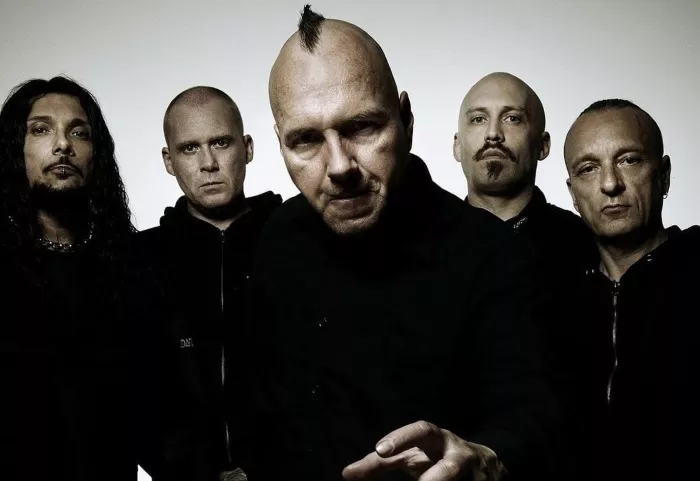The 1980s marked a pivotal era in the evolution of heavy metal music, giving rise to numerous subgenres that pushed the boundaries of sound, style, and lyrical themes. Among these subgenres, one of the most influential and controversial was 80s death metal. Defined by its aggressive instrumentation, guttural vocals, and dark lyrical content, death metal emerged as a distinct and powerful force within the broader metal landscape.
Origins and Influences: Tracing the Path
To understand the essence of 80s death metal, it’s essential to delve into its origins and the influences that shaped its development. The roots of death metal can be traced back to the late 1970s and early 1980s, with bands like Venom, Celtic Frost, and Possessed laying the groundwork for what would become a groundbreaking subgenre.
Venom, known for their raw and aggressive sound, introduced elements of Satanic imagery and dark themes into their music, setting a precedent for the edgier and more extreme direction that metal would take in the coming years. Celtic Frost brought a unique blend of thrash metal and gothic influences, while Possessed is often credited with pioneering the use of blast beats and growled vocals, both of which became hallmarks of death metal.
Defining Characteristics: The Sound of Darkness
One of the defining characteristics of 80s death metal is its distinctive sound, characterized by heavily distorted guitars, fast tempos, and complex riffing patterns. Drummers often employed rapid double bass pedal techniques and blast beats, contributing to the frenetic and intense atmosphere of the music.
Guttural vocals, featuring growls, screams, and shrieks, became synonymous with death metal, conveying a sense of aggression and brutality. Lyrically, death metal explored themes of mortality, violence, horror, and existential dread, delving into dark and taboo subjects with unflinching honesty.
Key Players: Pioneers of the Genre
Several bands emerged as pioneers of 80s death metal, leaving an indelible mark on the genre and influencing countless musicians in the years that followed. Among these trailblazers were:
Death: Formed in 1983 by Chuck Schuldiner, Death is often regarded as one of the founding bands of death metal. Their early albums like “Scream Bloody Gore” and “Leprosy” showcased relentless speed, technical prowess, and thought-provoking lyrics.
Morbid Angel: Hailing from Florida, Morbid Angel rose to prominence with albums like “Altars of Madness” and “Blessed Are the Sick.” Their intricate compositions and David Vincent’s distinctive vocals solidified their status as pioneers of the genre.
Possessed: As mentioned earlier, Possessed played a crucial role in shaping death metal’s sonic identity. Their debut album, “Seven Churches,” is often cited as a seminal work that laid the groundwork for future bands.
Carcass: While initially associated with the grindcore genre, Carcass transitioned towards a more death metal-oriented sound with albums like “Necroticism – Descanting the Insalubrious.” Their blend of brutal riffing and medical-themed lyrics set them apart in the scene.
Controversy and Criticism: Pushing Boundaries
Despite its growing popularity, 80s death metal also faced significant controversy and criticism. The explicit lyrical content, often dealing with themes of gore, violence, and blasphemy, sparked outrage among conservative groups and religious organizations. Albums like Cannibal Corpse’s “Tomb of the Mutilated” and Deicide’s self-titled debut courted controversy for their graphic imagery and provocative subject matter.
Additionally, death metal’s extreme aesthetic and perceived nihilism led to accusations of promoting violence and antisocial behavior. However, proponents of the genre argued that it served as a form of catharsis and artistic expression, confronting uncomfortable truths and exploring the darker aspects of human existence.
Evolution and Diversification: The 90s and Beyond
As the 1990s dawned, death metal continued to evolve and diversify, giving rise to subgenres like melodic death metal, technical death metal, and progressive death metal. Bands like Opeth, Death (evolving into a more progressive sound), and Nile pushed the boundaries of musical complexity while maintaining the aggression and intensity that defined the genre.
In the 2000s and beyond, death metal’s influence extended into other genres, influencing bands in the realms of black metal, hardcore punk, and even mainstream rock and metal. The enduring legacy of 80s death metal can be felt in the work of contemporary artists who pay homage to the genre’s roots while forging new paths of innovation.
Legacy and Impact: A Lasting Influence
The legacy of 80s death metal is undeniable, leaving a lasting impact on the metal landscape and inspiring generations of musicians and fans alike. Its raw energy, technical proficiency, and uncompromising approach to lyrical themes continue to resonate with audiences worldwide.
From the underground scenes of the 1980s to the global stage of today, death metal remains a vital and influential force in heavy music, showcasing the power of artistic expression and the enduring appeal of darkness in sound.
Conclusion
In conclusion, 80s death metal stands as a testament to the power of music to challenge conventions, provoke thought, and evoke raw emotions. Its journey from the underground to mainstream recognition is a testament to the resilience and creativity of artists who dared to explore the darkest corners of human experience.
As we look back on this iconic era, we can appreciate the groundbreaking contributions of bands and individuals who shaped death metal into a genre that continues to captivate and inspire listeners worldwide. Whether you’re a seasoned fan or a newcomer to the realm of extreme metal, the legacy of 80s death metal invites us to embrace darkness as a vital element of artistic expression and exploration.

